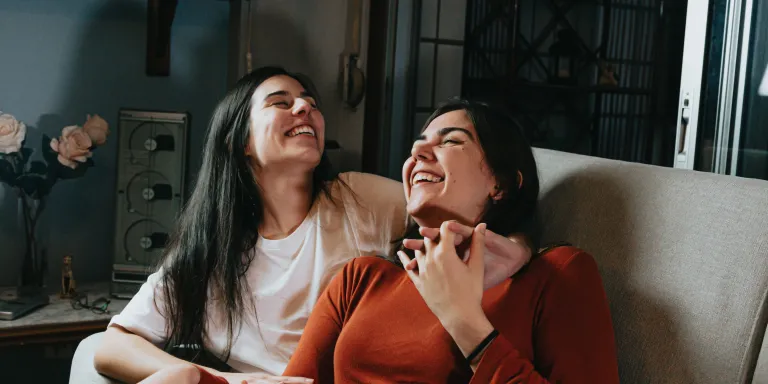
No relationship is happy all of the time. Like life, relationships go through ups and downs. But if you cultivate skills in empathy, communication, conflict, commitment, and love - you might find your relationships get stronger.
Empathy
Sometimes, arguments reach a stalemate because neither partner is willing to listen to what the other is saying. But listening to one another and trying to understand how each other is feeling doesn’t mean changing your own ideas or even necessarily admitting you’re wrong, it just means showing you partner you care about how they’re feeling and that you’re willing to make the effort to meet in the middle if necessary. Even if you’ve known your partner a long time, try to step into their shoes and recognise that they may see some things differently to you, but that doesn’t mean you can’t invest in their understanding.
Communication
It’s an obvious one, but bears repeating: communication is one of the most important skills in any relationship. Being able to clearly and consistently state how you’re feeling will mean that those little niggles that might otherwise develop into something worse can be resolved early on. If you want to know how to communicate better, you might like to read our top three tips on communicating with your partner.
It also worth remembering that communicating doesn’t just mean being able to make your own point well, but learning to listen to what your partner’s saying too. Try to employ ‘active listening’ when you’re talking together. Don’t just wait for your turn to speak, but really listen to what they’re saying. Repeat what they’re saying back to them. And ask them to clarify things – don’t always assume you know what they mean immediately.
Negotiation
People often think of arguing as inherently bad, but if there’s no friction whatsoever in your relationship, there’s a good chance someone’s holding something back. Differences between you and your partner are pretty much inevitable – it’s how you deal with those differences that counts. Sometimes, it’s a case of trying to argue better. Try to use a ‘soft’ start that focusses on your feelings instead of attacking your partner – so, ‘I’m so upset you forgot our anniversary’, rather than ‘how could you be so insensitive, you didn’t even get a card!’. Try to avoid letting things spin out of control: don’t say things you’ll regret later or just trade insults. And be prepared to be forgiving: it’s only when both partners are willing to let go of their desire to ‘win’ the argument that it can actually end. Chances are that if you are still arguing or bickering after 10 minutes your stress levels are too high to make it productive. There are ways of rowing better and one if those ways is to make it time limited; you can always go back to it.
Commitment
In a long-term relationship, commitment means being willing to work on difficulties together, planning for the future together and clarifying and protecting the boundaries you’ve agreed on. This takes persistence and hard work – but the rewards are more than worth it. And in the short term, it can also mean committing from moment to moment. Even if you’re on a first date with someone, it’s important you’re able to give things your full attention and show interest instead of wondering what else you could be doing or letting your mind get clouded over with doubts.
Love
The Ancient Greeks had 3 words for love.
Eros
This is erotic love. It means being attracted to each other. It’s the spark that makes your relationship feel exciting and special.
Philios
This means friendship. It’s the feeling of understanding one another, enjoying each other’s company and having shared interests.
Agape
This means being prepared to go out of your way for the other person or put them first. It might be something small like helping them with a task even though you’re really tired or something big like caring for them after surgery.
A relationship with all three of the above will thrive. But if any one of them is lacking, you might find things more challenging. As our life circumstances change these three things might ebb and flow, one being more present that the others perhaps.
That doesn’t mean you can’t get there, but it might be worth thinking about ways you could focus more on what’s missing.
How we can help
If you’re looking for support with your relationships, we can help. We offer a range of ways to speak with a trained relationship expert including ongoing counselling, 30 minute web and phone chats, and one session therapy.
Find out which service is right for you
How you can help
Have you found this advice helpful? Make a donation to help us reach more people and continue supporting the nation’s relationships:
Can't afford to donate? We understand. Instead, we ask that you leave us a 5 star review on Trustpilot.